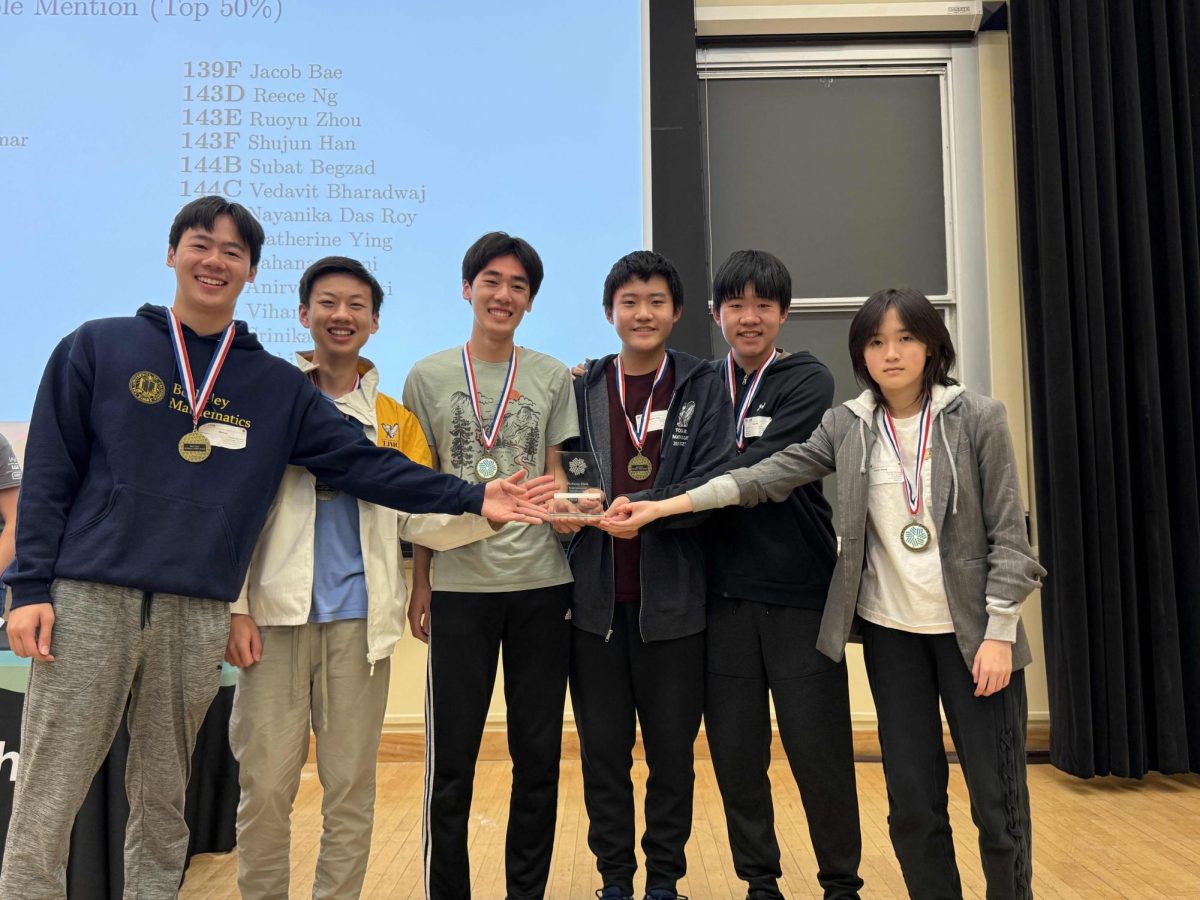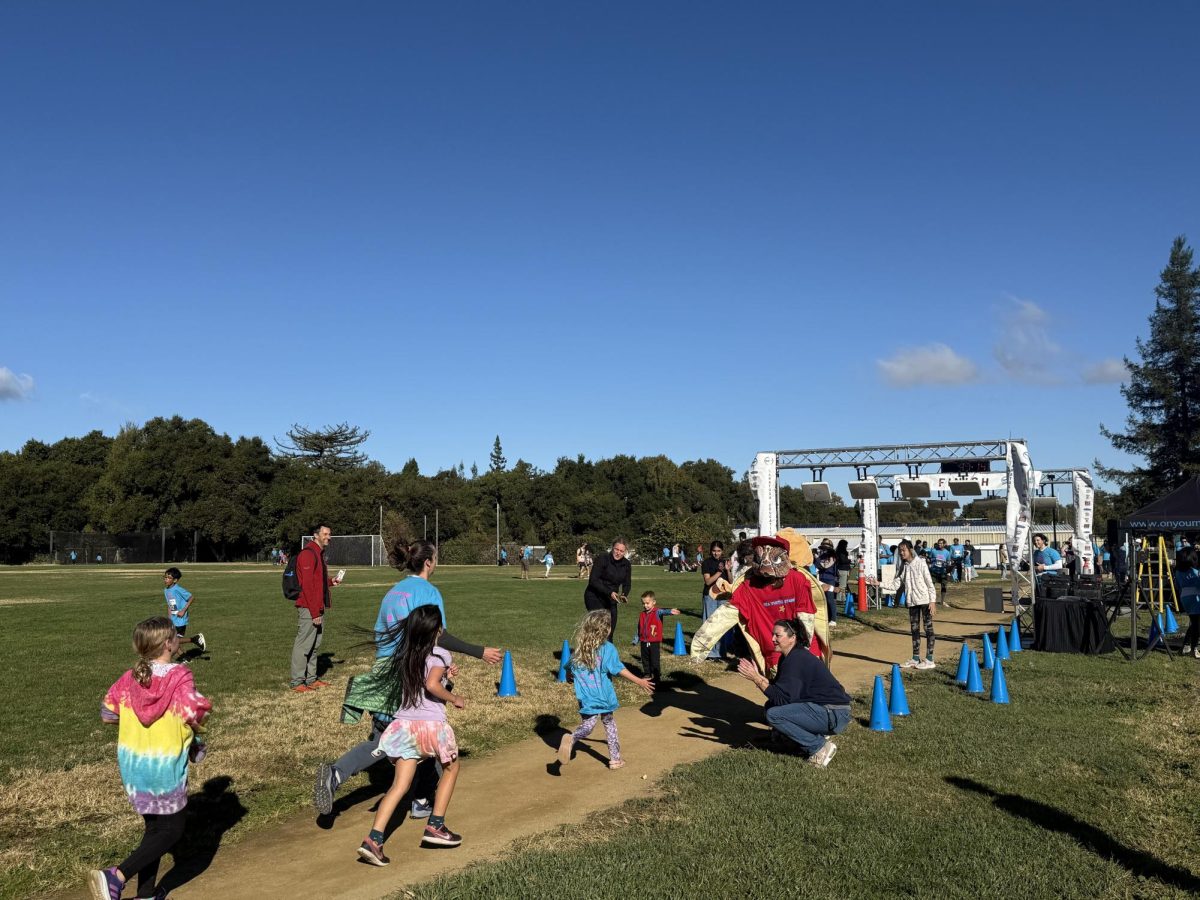Saratoga resident Charles Liu, father of junior Ferennie and freshman Ferrano Liu, still remembers his experience finding his first job in America.
After graduating from USC in 1998 with a master’s degree in electrical engineering, Liu searched the Silicon Valley for a job. As an immigrant, he was under a tight deadline: If he was unable to find work within a month after graduating, he would be forced to leave.
“Staying in China sounds like a normal, easy life, but you have to know the big environment,” Liu said. “During that time, the U.S. economy was strong, and although China’s economy was booming, it was still not as attractive for the engineering job and living environment.”
With the frenzy in tech, Liu was able to find a job opening in at a company called CellNet Inc., which gave him the key to someday obtaining U.S. citizenship: an H-1B visa.
The H-1B visa was created under the Immigration and Nationality Act of 1965 and grants specialized foreign workers the ability to be employed into U.S. firms. Without this, many Saratoga parents would not be here today.
Not all workers who apply for this visa get them. Only around one-third of them are selected by a lottery system, due to the limited supply and high demand. In 2017, close to 236,000 visa applications were received — and only 85,000 were selected.
Since the beginning of the Trump administration, there has been concern about a decline in both the applying for and issuing of H1-B visas. In financial year 2014, 124,000 were issued, which increased dramatically to 172,500 in 2015, jumped to 233,000 in 2016 and edged upward to 236,000 in 2017.
However, there has been a sharp decline in the 2018 fiscal year, the fiscal year immediately after Trump took office, with only 199,000 applications sent in before applications were closed, according to the United States Citizenship and Immigration Services (USCIS).
The number of H1B visa approvals has also taken a severe hit since the Trump administration took over. Prior to 2017, the approval rate percentages ranged in the mid-70s and low-80s; however, in 2017, when the new administration began handling applications, the approval rate fell to 59 percent.
From these statistics, some employers have begun noticing a crackdown in the immigration sector — an unusually large number of these applications were being challenged by the USCIS. In addition, Trump called for the elimination of other visa programs, such as the Diversity Visa Lottery, based on the belief that immigration should be merit-based, more like the system in Canada.
Trump also says he wants to limit family-based migration, which he also calls chain-migration. These efforts may someday cut the number of foreign workers in the U.S.
According to Bloomberg, such factors have led many companies, especially information technology companies like Infosys and Tata Consulting Services, which have previously relied heavily on immigrant workers, to cut down their reliance on the visa. As a result, the number of applications received in 2017 has decreased for the first time in five years.
Despite the low chance of getting visas, skilled workers of all professions from foreign countries apply for them each year, hoping to give their children the opportunity for a better life. Some — Asian-Americans in particular — who took this chance and moved to America have become well-paid engineers, doctors, professors and other professionals.
Although Liu’s tech background provided for easier job-hunting, for therapist Claudia Gao — cousin of SHS alumnus Steven Fan — the process of getting the visa proved considerably more difficult.
Even with a master’s degree in organizational psychology from Columbia University and a bachelor’s degree in psychology from UCLA, the Chinese citizen struggled to find a company that would sponsor the visa.
“When I was searching for job, I felt anxious and desperate,” Gao said. “Besides the normal feelings most job seekers encounter, I also felt that I didn’t belong to this country, since I was a foreigner.”
Gao said that as a foreigner, she was at a disadvantage compared to many of her native-born job seekers. He had to go through additional “screening processes” like the H-1B visa selection, as well as other difficulties.
“I was treated differently because of my country of citizenship,” Gao said. “While it is understandable that the country needed to protect its own citizens first, it still felt like unfair treatment.”
Eventually Gao landed a job as a therapist with the Jersey City Medical Center in Jersey City, N.J., and received her visa. She is hoping to get permanent residence in the U.S., so that she is no longer a foreigner.
Immigrants, like Gao, who hold H-1B visas are still far from being permanent residents, let alone a citizens. They can apply for an I-140 petition, an immigrant petition to permanently work in the U.S. After this is approved, the petitioner receives a green card, a proof of permanent residency for non-U.S. citizens. The applicant is not allowed to change jobs during the application process, but that usually does not hinder the process.
“Usually, the company that sponsors the H-1B visa will sponsor you to apply for a green card,” Liu said.
In order to become a citizen, Liu needed to satisfy several requirements, including being fluent in English and having a green card for five years.
After taking these steps and earning a U.S. citizenship, Liu kept exploring. After a couple of years working in the U.S., Liu decided to move back to China. Although he needed to take care of some family issues and wanted his children to experience different cultures, there were other reasons for his return.
“The Chinese internet business was booming, and as an adventurer, I wanted to go there to look for opportunities, such as starting a company on my own,” Liu said. “But after three years, I failed. None of the things I tried for the last 10 years really flew as I wished. So we moved back to the U.S..”
Currently, Liu is working on a facial recognition system for his startup company that he believes will commercialize within the next year. He has been working on this project for the past two years, ever since he quit his job at Samsung.
Liu was able to move to America to both pursue a better career and to give both of his children access to better education. It helped him explore much of the field of engineering that he wouldn’t have experienced if he had stayed in China, and it brought his children to a coveted school system. In essence, Liu believes that the H-1B visa changed his life completely.
“Without [the H-1B visa], I would have never even been able to work in the U.S.,” Liu said. “It’s hard to say where I would be without it, but I have no regrets.”




























